The Birkbeck Institute for the Study of Antisemitism holds seminars, workshops and conferences for scholars, and lectures, discussions and film screenings that are open to everyone.

This conference is a follow-up to the five successful conferences, which took place at Imperial War Museum London in 2003, 2006, 2009, 2012 and 2015. It builds on areas previously investigated, and also opens up new fields of academic enquiry. It brings together scholars from a variety of disciplines who are engaged in research on […]
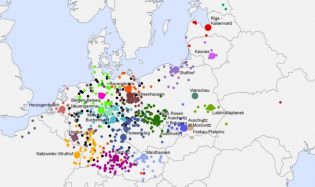
In this lecture Tim Cole explores the gaps within Holocaust scholarship and some of the ways that those gaps have been filled by scholars. In large part, calls for integration have revolved around narrating stories that bring together perpetrator and victim historiographies.
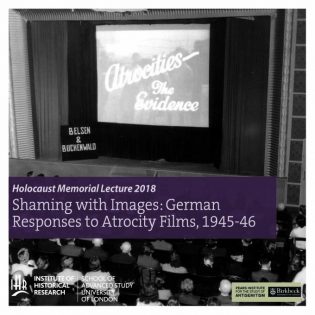
Starting with the premise that many Germans regarded the Allies’ screenings of these atrocity films as acts of public shaming, Ulrike Weckel explains how the dichotomy of success or failure oversimplifies the historical situation and discusses some of the complexities involved in understanding the attitudes and actions of the shamed.

This talk examines the visual depiction of Jews, Judaism, and Jehovah in 1920s Soviet Russia. It does so by examining the pages of The Atheist at the Workbench, a journal published by the Bolsheviks to promote atheism.

This film tells the story of one Jewish family’s migration to the new ‘Soviet Zion’ and their experiences as settlers on a collective farm as they build their new life. In the panel discussion speakers will consider questions the film raises about the history of Jews under communism and the relationship between Zionism and the Soviet project.

This talk explores the consequences of prejudice against German Jews in the Weimar Republic, and British Muslims in contemporary, post-9/11 England. It focuses on the responses of targets of antisemitic and Islamophobic prejudices, and the social and political dynamics underpinning them.

Based on a short story by Russian Jewish writer Vasilii Grossman, the film chronicles the dramatic journey of Klavdia Vavilova, a pregnant Red Army commissar during the Russian Revolution. In the panel discussion speakers will explore issues the film raises about both antisemitism and gender in the Russian Revolution.

This Symposium will present the findings and recommendations of a major study into immigration and antisemitism in Western Europe.
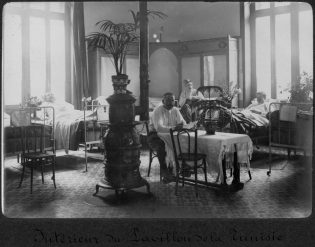
In this talk, Professor Katz discusses the findings from his prize-winning book, The Burdens of Brotherhood. He traces the simultaneous development of coexistence and conflict among Jews and Muslims in France across the twentieth century and up to our own time.

Talks, screenings and discussions will explore how soundscapes – music, voices, speech, noise and silence – evoke difficult histories, in particular the Holocaust. By looking at sound editing in film, music composition, installation art and museum exhibitions we will address questions around representation, remembering, authenticity and affect.

Roma often appear as victims in human rights narratives; instead, this book draws on extensive original research in Czech and Slovak archives, sociological and ethnographic studies, and oral histories to foreground Romani activists as advocates for their own rights under socialism.
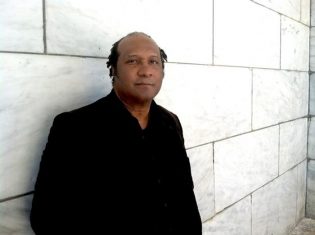
As some Jews became ‘white’ in the twentieth century, large groups of non-white Jews simply disappeared, or at least disappeared as Jews. Professor Lewis Gordon explores some unique challenges and dynamics faced specifically by Afro-Jews, in light of the tendency in Euromodern scholarship to erase the African elements, in what is now known as ‘western’ history and its religions.

Having suffered discrimination in Europe, Jews were able to become some of the sharpest critics of societal inequalities. In this lecture, Professor Santiago Slabodsky offers an alternative framework for understanding Jewish responses to antisemitism and Jewish history more broadly.
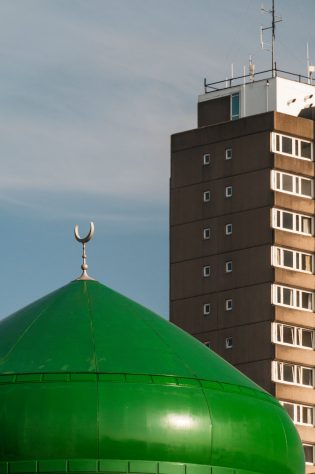
In three dynamic conversations, established and emerging international scholars of contemporary Britain discuss: the past and present of ‘multiculturalism’; the shifting politics of class, race and difference in post-1968 Britain; and the role and responsibilities of anti-racist scholarship.

This talk will examine the impact of the transnational circulation of ideas on the early fascist imagination. In doing so, we will also ask how and to what extent a transnational and cultural approach can contribute to our understanding of fascism as a European phenomenon.

Laws prohibiting the denial of the Holocaust have been passed in many countries, yet Holocaust denial is still with us. At the same time, denial contributes to the erasure of the history of African enslavement in UK politics and wider culture.

Racism against African Americans was a preoccupation among Jewish radicals of the early twentieth century. This lecture will focus on Lintsheray in the context of the lynching motif in Yiddish literature as well as contemporaneous depictions in African-American fiction.

Drawing on several lexicographical projects of Yiddish which trace its linguistic mutations under Nazi persecution, Miriam Schulz discusses the phenomenon of so-called khurbn-Yiddish (Holocaust-Yiddish) as a key to retracing Jewish culture in extremis.
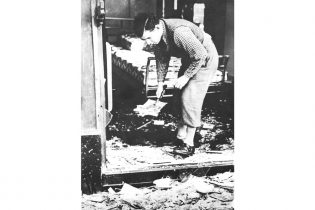
2018 marks the eightieth anniversary of momentous events in the history of Nazi Germany: the violence of Kristallnacht, the Anschluss (the incorporation of Austria within Germany), the German takeover of the Sudetenland, and the inception of the Kindertransport, all of which took place in 1938. Our panel of experts will explore how these events unfolded, analyse their historical significance and ask, how should we remember them today?

This international workshop brings speakers from Europe, the United States and Israel to explore the theoretical, historical and comparative perspectives on the relationship between the Left, Jews and antisemitism. In doing so it also aims to shed light on current controversies concerning antisemitism in the Labour Party and the British Left more widely.
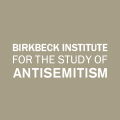
The Birkbeck Institute for the Study of Antisemitism is the only centre in the UK, and one of only two centres in Europe, whose mission is to promote understanding of antisemitism.